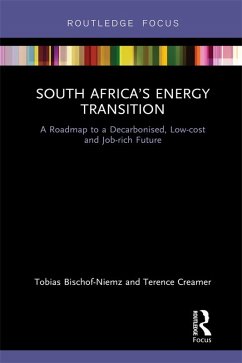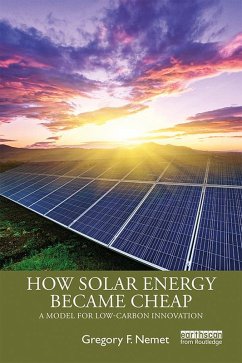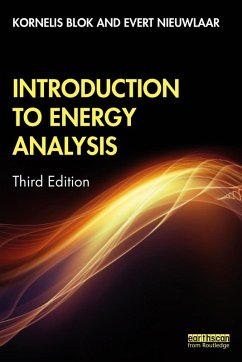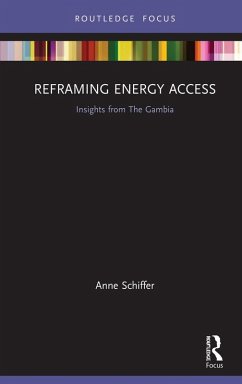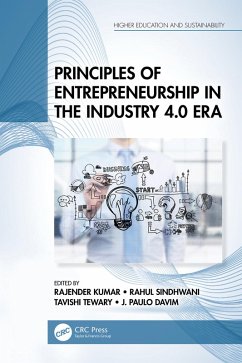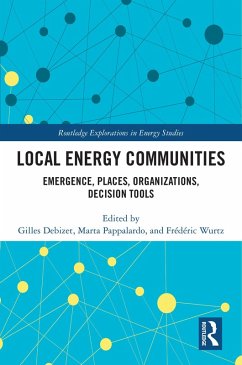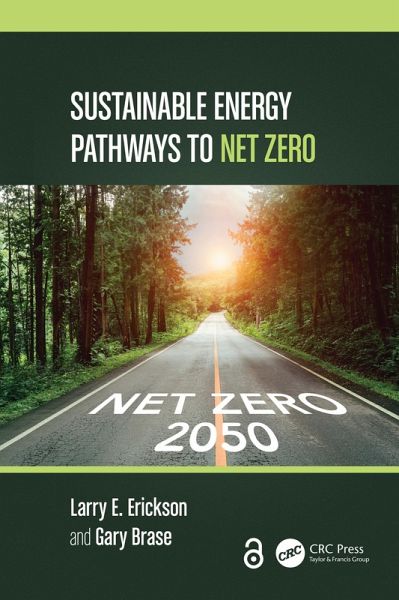
Sustainable Energy Pathways to Net Zero (eBook, ePUB)
Versandkostenfrei!
Sofort per Download lieferbar
76,95 €
inkl. MwSt.
Weitere Ausgaben:

PAYBACK Punkte
38 °P sammeln!
Sustainable Energy Pathways to Net Zero addresses realistic pathways between now and 2050 to reach net zero: a steady state concentration of greenhouse gases in the atmosphere. It discusses solar and wind energy, hydrogen, energy storage, and electric vehicles, all of which are becoming an increasingly cost-efficient part of these pathways. Hydrogen, the price of electricity, the integration of different sources of electricity into the electrical grid, and the electric vehicle charging networks are crucial in balancing supply and demand. This book describes how these different energy factors f...
Sustainable Energy Pathways to Net Zero addresses realistic pathways between now and 2050 to reach net zero: a steady state concentration of greenhouse gases in the atmosphere. It discusses solar and wind energy, hydrogen, energy storage, and electric vehicles, all of which are becoming an increasingly cost-efficient part of these pathways. Hydrogen, the price of electricity, the integration of different sources of electricity into the electrical grid, and the electric vehicle charging networks are crucial in balancing supply and demand. This book describes how these different energy factors fit together. It emphasizes the fact that the intersection of these technologies is where the most profound advances can occur.
Features:
This book is a great resource for government and industry professionals involved in energy production and management, as well as academics and students in science and engineering interested in the pathways to sustainable development. The Open Access version of this book, available at http://www.taylorfrancis.com, has been made available under a Creative Commons Attribution-Non Commercial-No Derivatives (CC-BY-NC-ND) 4.0 license.
Features:
- Emphasizes the importance of demand management for electricity and reducing cost.
- Explains the economics of reaching net zero emissions and the role of innovation and public policies, among others.
- Discusses the cost and efficiency of solar and wind power, electric vehicles, and storage technologies, and describes the benefits of battery swapping.
- Focuses on the role of integration of different sources of electricity into the electrical grid as an important part of the pathway.
- Recommends research and development on electrochemical processes to remove carbon from the ocean.
- Written in a simple language for a general audience and understandable for a global market.
- Is Open Access to encourage global use.
This book is a great resource for government and industry professionals involved in energy production and management, as well as academics and students in science and engineering interested in the pathways to sustainable development. The Open Access version of this book, available at http://www.taylorfrancis.com, has been made available under a Creative Commons Attribution-Non Commercial-No Derivatives (CC-BY-NC-ND) 4.0 license.
Dieser Download kann aus rechtlichen Gründen nur mit Rechnungsadresse in A, B, BG, CY, CZ, D, DK, EW, E, FIN, F, GR, HR, H, IRL, I, LT, L, LR, M, NL, PL, P, R, S, SLO, SK ausgeliefert werden.





